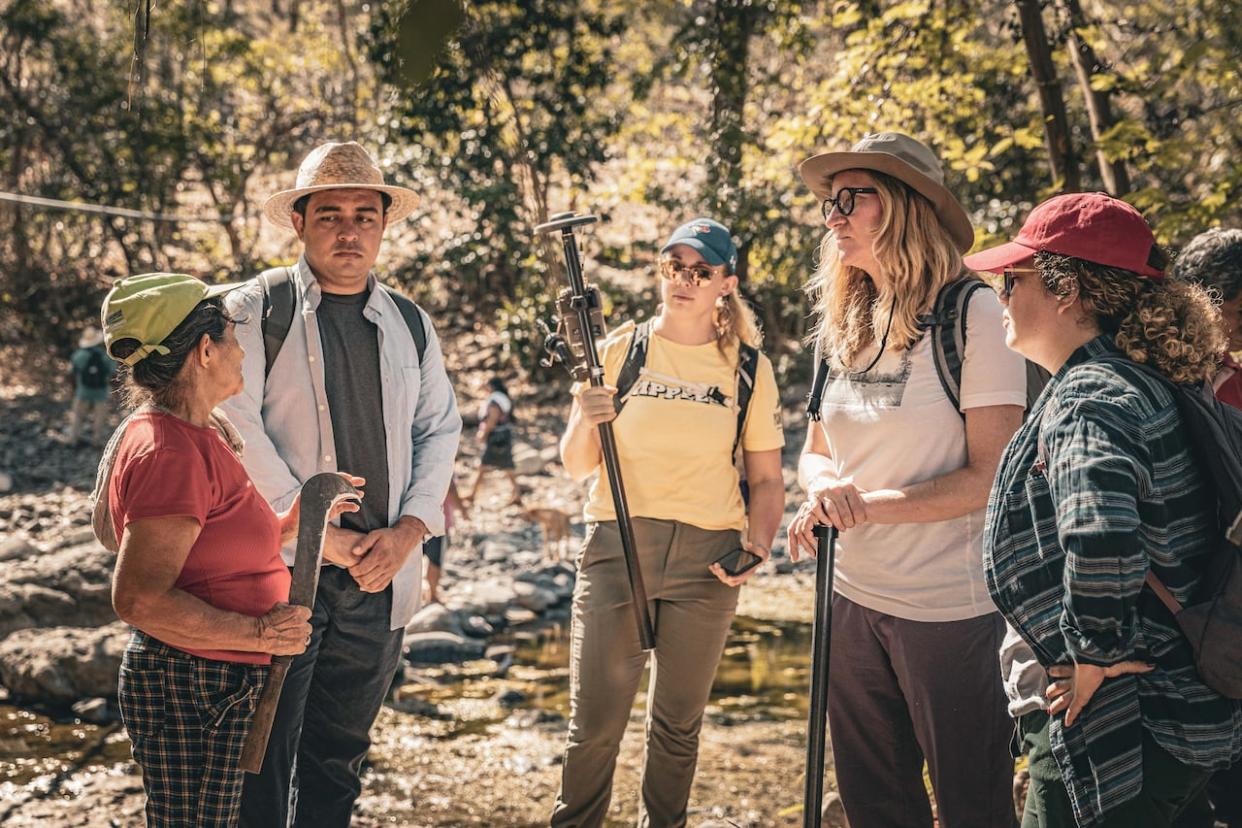El Salvador's civil war left unmarked graves countrywide. Ontario researchers are helping find them

A Western University project documenting dozens of massacres that took place during the Salvadoran civil war is allowing survivors to reconcile their country's history and grieve lost loved ones.
El Salvador's civil war started in 1979. Upwards of 80,000 people were killed during the war, with thousands disappeared, according to the United Nations. Western's research team says hundreds of people were buried in mass graves with nothing to mark them.
Since 2017, researchers at the London, Ont., university have been travelling to El Salvador to work alongside survivors, architects and local organizations to find and memorialize the exact location of each massacre site.
They're currently using GPS locators, pinning locations on an interactive map alongside detailed memorials of witnesses.
'A very long process'
"It has been a very long process working with survivors to hike into very dense jungle and forest to reach some very remote sites, " said Amanda Grzyb, the project lead and a professor at Western.
"We bring a lot of equipment with us, including GPS equipment and cameras to get precise locations. If the survivors wish, we often film a testimony at the site."

Adriana Alas Lopez and Shawn Robertson record the testimony of Julio Rivera at the site of the La Laguna de San Ramón massacre. (Submitted by Amanda Grzyb)
The interactive map and testimonials live on a web page the group has called Surviving Memory in Postwar El Salvador, and with each visit to the country, it grows to incorporate more stories from survivors.
It's slow work. The team explains that in one instance, they've been working since 2018 to located the site of a grave dug in haste by villagers trying to save themselves from the military.
Locals remember seeing 14 people killed — six women, five children and three men.
Working towards reconciliation
"We brought along a witness who was 10 years old at the time of the massacre and who had watched it from a hilltop with his father," Grzyb said
"We thought that we had located the site and our partners conducted an exhumation, and unfortunately it was not the spot. So we think that we may need to introduce ground-penetrating radar to actually find the precise location."
LISTEN | Researchers talk about their project and importance of memorials:
The project is also focused on commemorative activities and workshops held on anniversaries of particular massacres.
"It's opened a space in the country that hasn't been very clear in the last decades and it's attracting people from different backgrounds to talk about what happened during the Civil War," said Salvadorian postdoctoral student Adriana Alas Lopez, who has been involved in the translation of the stories from people in the region.
"With the idea of a reconciliation, that is something the country needs to work toward. I think the project is contributing a lot with documenting the history, and listening to the survivors' histories and finding out the complexity of their family history," Alas Lopez said.


